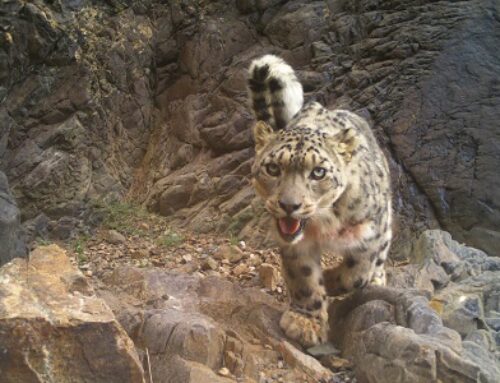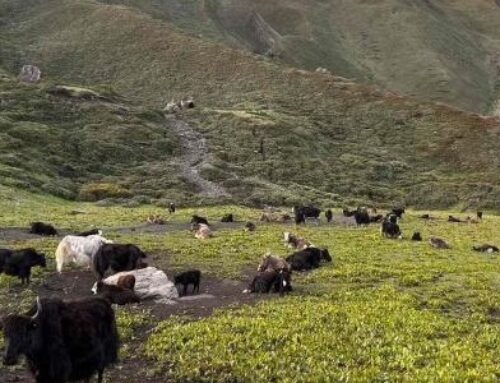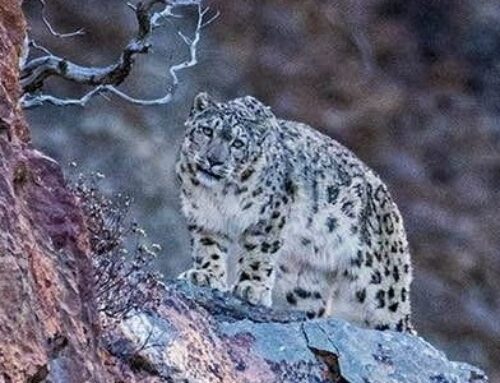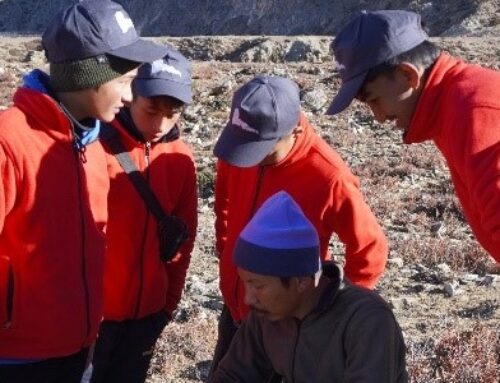
Photo – Tashi Ghale
The Conservancy has been working with communities in the Nar & Phu valleys of the Annapurna Conservation Area and Sagarmatha National Park in Nepal under the generous support of the Darwin Initiative. The Darwin Initiative is a three-year, nine-month project ending December 31, 2021. It focuses on improving the security and resilience of the snow leopard population, its primary prey base, and other biodiversity.
The Covid-19 pandemic and Nepal’s political crisis severely affected project implementation, starting with national lockdowns, international and domestic travel restrictions, a constitutional crisis, and several senior Nepali staff falling ill with severe cases of Covid-19. Despite these challenges, the Snow Leopard Conservancy, together with partners Mountain Spirit (MS) and Nepal Trust for Nature Conservation (NTNC), accomplished a number of critical tasks in the last 12 months.
Responding to community needs, we distributed emergency food, gloves, and masks to those in the Nar and Phu valleys. And with international tourism at a standstill, we redesigned the Snow Leopard Trail tourism project and provided short-term alternative skills training to villagers from Nar and Phu and the Thamo valley in the Mount Everest region to address income losses. Eighty-two villagers (43 men and 39 women) were trained in baking and cooking and basic plumbing/water system maintenance skills. This allowed local communities to generate some income to replace lost tourism revenues and become more self-reliant. An additional ten Mountain Spirit staff were trained in basic business planning skills, allowing them to better identify future conservation enterprises once travel restrictions are lifted.






